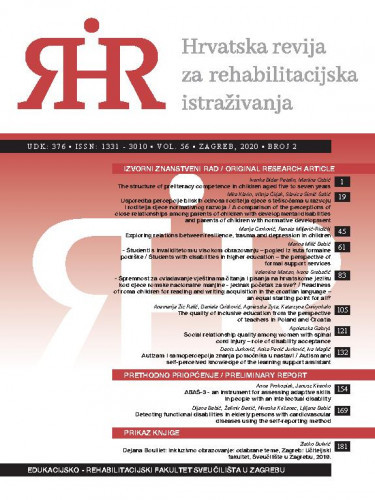In its initial part, the article presents an analysis of the definition of intellectual disability and follows its development over the past half century. In order to diagnose an intellectual disability, it is important not only to demonstrate an overall level of intelligence that is at least two standard deviations below the median score, but also to take into account the concurrent criterion of developmental age. Moreover, as discussed in this article, defining an intellectual disability also requires addressing limitations in adaptive behaviour, i.e. cognitive, social and practical functioning skills. These diagnostic criteria are met by the “Adaptive Behavior Assessment System” (ABAS), published originally in 2000 by Harrison and Oakland. Its third edition came out in 2015. ABAS-based evaluations find a wide variety of uses, including assessing adaptive behaviour of people with intellectual disabilities, diagnosing and classifying disabilities and disorders, documenting and monitoring progress over time, and determining entitlement to disability benefits. The instrument has many strengths, but it also exhibits limitations. For example, comprehensive examination is only possible if the localised adaptations of ABAS are suited for people in the age bracket of 0-89 years. The effective use of this instrument is also dependent on its compatibility with the formal disability assessment system and with the strategies for working with students who have intellectual disabilities. The level of this compatibility should be no less than the American variant. Only then will ABAS-3 be fully adaptable to the purpose for which the assessment is developed, and the results obtained will be useful and properly applied.
Sažetak

 Hrvatska revija za rehabilitacijska istraživanja : 56, 2(2020) / urednica, editor Jelena Kuvač Kraljević
Hrvatska revija za rehabilitacijska istraživanja : 56, 2(2020) / urednica, editor Jelena Kuvač Kraljević